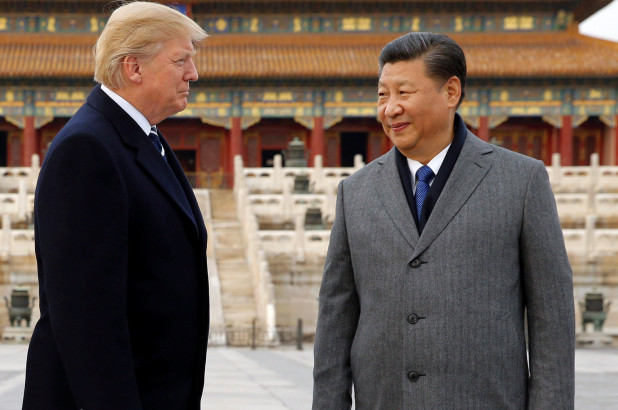A decision on one of the more controversial of U.S. President Donald Trump’s protectionist policies was yesterday postponed as the U.S. extended the exemption from tariffs on steel and aluminium imports for a handful of allies including the European Union. The news comes in the wake of talks with Europe’s ‘big hitters’, French President Emmanuel Macron and German Chancellor Angela Merkel, who left Washington with seemingly little to show for their efforts. But this reprieve might quietly be considered a victory–so long as the Europeans can figure out a way to make it permanent. As tensions with China escalate, the bloc will hope that Trump is realising he needs the economic might of his close European allies.
The tariffs were introduced to support the struggling American metals industry. The industry is being undercut by the influx of cheap metal from China, who now produce about half of all the world’s steel and aluminium. By restricting the supply of these metals in the U.S., the domestic price of those metals will increase, and that means greater profits for the ailing American metal-makers. China, however, have reacted in kind, increasing duties on 128 American imports to 25% in what Beijing argued was necessary ‘in order to safeguard China’s interests’. But what is most surprising is that these American tariffs look likely to hit the European Union harder than China. The President’s decision to extend Europe’s exemption from tariffs to at least 1st June represents only temporary respite; if Trump’s main strategic adversary lies to the Far East, why is a trade war with Europe potentially on the horizon?
A trade war between the EU and the US serves no one. Restrictions on foreign trade harm the people they purport to protect. From clothing to food, trade restrictions limit public choice and raise prices, and lower-income individuals typically bear the brunt of these costs. Free trade, meanwhile, leads to goods of a higher quality and lower cost. It improves efficiency and innovation, and increases competition. What people often call the ‘fragilities’ of free trade are rarely real weaknesses. The problems that come about as a result of ‘free trade’ tend to have more to do with ‘free trade’ agreements, which can be a long way from promising free trade: indeed, modern trade agreements are often filled with regulatory terms regarding food, finance and intellectual property, for example.
When a sector finds itself exposed to intense competition, as was the case for UK coal and steel and, arguably, American steel at the moment, the shock should not be at the industry struggles; what should be shocking is that the country is unable to absorb these shocks, and relocate and retrain those involved in the smoothest and most ethical way possible. And that’s one of the things that is chronically misunderstood about free trade. Jobs do not become fewer but greater. They decrease in less productive sectors and increase in more productive ones. When you allow an economy to move closer toward the ‘free’ end of the economic spectrum, you necessarily strip away regulations stifling that economy and make it more agile and more dynamic. This has been the case in India and China in the past few decades.
Maybe Xi Jingping of China said it best when he called protectionism–particularly Trump’s protectionism–as ‘locking oneself in a dark room’. Whether or not Trump sees these trade moves as part of a longer game to get his perceived adversaries to make concessions, any kind of trade war will be a lose-lose. Free from the EU, we have the opportunity to reimage our economy in a manner most productive to the ‘liberal Brexit’ we hope to implement.
For a long time, trade has been the great leveller, bringing peace and prosperity across the globe. A trade war benefits no one, it’s a zero-sum game. We should not fear the movement of jobs away from unproductive sectors, but instead realise our competitive advantage in our productive ones. As the CEO of the Chamber of Shipping, I have seen the benefit that trade brings. Now, more than ever, we should look to strengthen bonds with our allies through this trade to ensure a prosperous future for all.






Comments